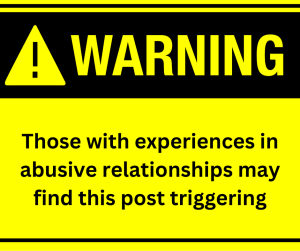Turn the Other Cheek: What does Jesus mean?
Topics to Dig Into

The barbs land sharply. Peg’s smirk reveals her satisfaction. Hah! Take that and that and that!
Offended, Janie strikes back, “Well, since you brought it up, you…”
When hurt, most of us instinctively lash out in retaliation, defend our stance, or bend to the blows.
What could happen if, instead, Janie firmly gazed into Peg’s eyes unphased?
Jesus says “Don’t retaliate.”
In the Sermon on the Mount, Jesus instructs the crowd regarding misinterpretations of the Hebrew Law, including retaliation. He affirms the legal code but gets to the heart and wisdom behind the law.
You have heard the law that says the punishment must match the injury: ‘An eye for an eye, and a tooth for a tooth.’ But I say, do not resist an evil person!
Matthew 5:38
Hebrew Law and other ancient laws laws moderated it to in-kind punishment—an eye for an eye. The law guided neutral judges in punishing offenses. It did not justify measured revenge.
Jesus demands a different response.

Jesus replaces vengeance of any kind with generous love, summarizing the entire Law as loving God and loving others. Jesus demands and demonstrates selfless, generous love and concern for others whether friend or foe. Didn’t He ask God to forgive His executioners?
His sermon teaching continues:
‘An eye for an eye, and a tooth for a tooth.’ But I say, do not resist an evil person!
Matthew 5:39
Wait a minute… Aren’t we supposed to oppose evil?
Yes. This command only forbids retaliation against an evil person or someone who wrongs you. Jesus still endorses resisting ‘the evil one’ (the devil) or an evil system.
Does Jesus want us to endorse bad behavior?
No. Fortunately, Jesus illustrates this unusual response with four real-life examples. We’ll look at the first in this post and the others in the coming weeks.
But I say, do not resist an evil person! If someone slaps you on the right cheek, offer the other cheek also.
Matthew 5:39
Let’s visualize this because the Bible includes details for good reason. When facing your foe, to slap your opponent on the right cheek with your dominant right hand necessarily uses the back of your hand. It’s a backhanded slap. Let that settle. Insulting. Humiliating. Degrading.
Such a slap intends to shame rather than physically injure and asserts dominant authority. Someone intending physical harm would land a right handed, closed-fisted punch on the left cheek.
A backhanded slap “was the most grievous insult in the ancient world,” according to New Testament scholar, Craig Keener. The gesture says, “You’re a worthless low life.”
Permitting such humiliation without response feels a lot like being a doormat.
Jesus instructs that although we have a legal right to recompense, we give up our personal right to advance a greater good. We exercise peaceful, loving non-retaliation, exposing the world’s unjust power structures. It’s a radical idea for Jesus’ audience and for us.
Practice kingdom ethics; love all, even those who are bad.
 Jesus demonstrated an active, non-reactive response in the passion.
Jesus demonstrated an active, non-reactive response in the passion.
I offered my back to those who beat me
and my cheeks to those who pulled out my beard.
I did not hide my face
from mockery and spitting.
Because the Sovereign LORD helps me,
I will not be disgraced.
Isaiah 50:6-7
The ways to interpret ‘turn the other cheek’ are as numerous as there are commentators. As we examine this one situation, remember that it illustrates non-retaliation—do not resist an evil person. Additionally, it is only the first of four vignettes illustrating Jesus’ point.
Scholars offer the following possible interpretations for ‘turn the other cheek’:
- I refuse to submit and slink away in shame. I reject your characterization because I am not defined by who you say I am, but by God. Your insult doesn’t change my inherent dignity and identity as a child of God.
- If you need to publicly humiliate me to demonstrate your superiority, then let me generously allow you to feel good about yourself. Perhaps prompting the perpetrator to examine their motives.
- My unexpected response names the injustice and the oppressor’s evil.
- With selfless kingdom love for my perpetrator, I refuse to satisfy my desire for revenge. I sacrifice my right to legal recompense to shed light on an unjust system. I hold my ground and offer the other cheek to stand up for a righteous principle.
- I don’t seek to win or to shame my perpetrator. I remove myself from the honor and shame-based hierarchy that is central in 1st century societal structure. We dehumanize people differently in the 21st century, but the heart of Jesus’ teaching remains: I live by kingdom standards, not by the world’s.
The Apostle Peter reminds us of Jesus’ example.
For God called you to do good, even if it means suffering, just as Christ suffered for you. He is your example, and you must follow in his steps… He did not retaliate when he was insulted, nor threaten revenge when he suffered. He left his case in the hands of God, who always judges fairly.
1 Peter 2:21,23
How do you respond?
Which one or more of these interpretations resonates with you? Why?
Have you seen this type of non-violent retaliation in practice?
Will 21st century humans take advantage of those practicing the principle?

I find these cultural insights so interesting I wrote about this backhanded insult in 2015! Do you remember?
Resources:
R. T. France, The Gospel of Matthew, The New International Commentary on the New Testament (Grand Rapids, MI: Wm. B. Eerdmans Publication Co., 2007).
Craig S. Keener, The IVP Bible Background Commentary: New Testament, Second Edition. (Downers Grove, IL: IVP Academic: An Imprint of InterVarsity Press, 2014).
John R. W. Stott and John R. W. Stott, The Message of the Sermon on the Mount (Matthew 5-7): Christian Counter-Culture, The Bible Speaks Today (Leicester; Downers Grove, IL: InterVarsity Press, 1985).
#seedsofscripture #readthebiblebetter #biblestudy #studyScripture #turntheothercheek #sermononthemount #nonviolentresistance #Christinme #transformed #betransformed #transformedlife #sanctified #sanctification
